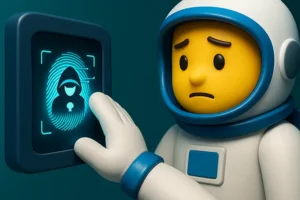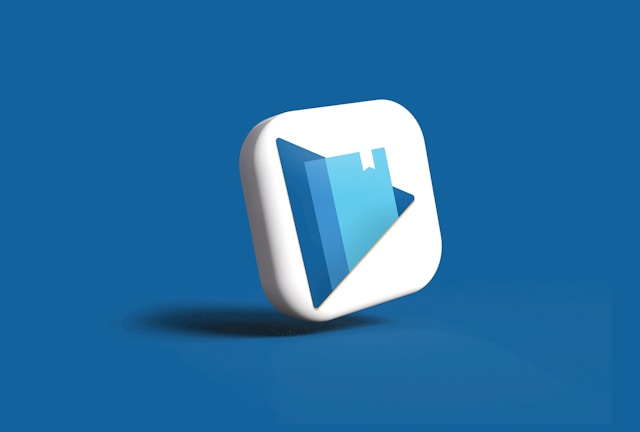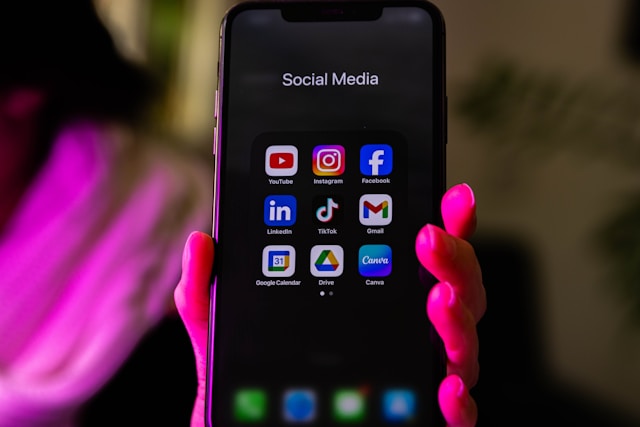Tech in Healthcare: Revolutionizing Patient Care

In this swiftly transforming digital era, isn’t it impressive how our day-to-day routines have undergone a technological makeover? Neatly packaged within the realm of the cloud, everything seems to be just a click away, and that includes healthcare too. Today, health monitoring isn’t limited to those tension-filled visits to the doctor’s clinic. Instead, it is proactively taking place right in our homes or, to be more precise, in the palms of our hands.
From booking an appointment with a specialist to getting a virtual check-up to having medications delivered at the doorstep, technology has somewhat desensitized the scariness associated with hospitals and diagnostics. And this is just a tip of the healthcare transformation iceberg!
“Healthcare and technology are evolving in tandem, providing solutions that were inconceivable until a few years ago.”
It’s now time to delve deeper into this revolution, exploring how certain technological breakthroughs are morphing the healthcare sector for the ultimate benefit of the patients. From remote consultations, electronic health records, to Artificial Intelligence in diagnostics, let’s navigate this exciting technological journey together.
Breaking Down the Digital Revolution in Healthcare
Further moving along this digital wellness landscape, let’s consider how essential innovation has become in streamlining healthcare services. Technology has opened the gates to extensive networking and improved accessibility, leading to a seismic shift in how we interact with health systems.
The clinical thermometer and the humble stethoscope, while still very essential, are no longer the pinnacle of modern medicine, making room for advanced sensors, wearable tech, and remote diagnostics. How does that translate for you, an end-user in healthcare? Yes, we’re discussing telehealth and remote consultations.
Remote Consultations:
Imagine that recurring visit to the doctor for chronic conditions. It demands your energy, time, and mental well-being, especially challenging given our busy lives. But what if you could interact with your doctor from the comfort of your living room sofa? Indeed, it relieves a lot of pressure, doesn’t it?
Remote consultations enable exactly that, aided by the internet and digital device proliferation. Whether it’s tiding over pandemic-related restrictions or routine check-ups, telehealth allows you to consult healthcare professionals at your convenience. Agile, efficient, and safe, this format is significantly transforming patient-doctor interactions.
But there’s something even more exciting at work, managing to make a mark in the complex world of healthcare through the sheer power of artificial intelligence. Yes, we’re referring to the use of AI in diagnostics.
AI in Diagnostics:
Imagine you’re feeling under the weather. Typically, your physician would ask questions, do a physical examination, maybe order some lab tests, and then make a diagnosis. Often, this is a time-consuming and potentially complicated process. But imagine a world where machines use artificial intelligence to diagnose your symptoms and suggest treatments. Sounds straight out of a sci-fi movie, right? But this is happening right now.
Machine learning technologies are revolutionizing diagnostics, enhancing accuracy, and speed. Sophisticated algorithms analyze patient data, identify patterns, predict diseases, and recommend treatment plans. AI’s growing influence is enabling a quicker, more accurate diagnosis and is shaping the future of healthcare as we know it.
Yes, the digital revolution in healthcare is just getting started, and as a patient, you stand to gain immensely in this transformation. Get ready for an easier, more efficient healthcare experience.
Reaping the Benefits of Remote Consultations
You might be amazed to find out that the concept of remote consultations, also known as telemedicine, isn’t exactly new. Flash back to the early years of television. Medical professionals saw the potential of this technology and thought about utilizing it for consulting patients across distance. Fast forward to today, and it’s a reality revolutionizing healthcare.
What’s truly remarkable is how beneficial this new practice proves to be. Not only are remote consultations saving patients time and effort, but they are also helping to extend healthcare resources and personnel more efficiently.
The advantage that often first comes to mind is convenience. For individuals living in rural areas or those with mobility issues, traveling for a doctor’s appointment can be quite challenging. Through telemedicine, interaction with healthcare professionals is made possible without the hassle of travel. It makes healthcare more accessible for everyone.
But the advantages of remote consultations go beyond convenience. In a world where illness can spread rapidly, telemedicine offers the capacity to receive care without the risk of exposure to others. It has been particularly instrumental in periods of widespread health concern ike the recent COVID-19 pandemic where it offered a safer alternative for managing health.
As revolutionary as they are, remote consultations aren’t without challenges. Technical difficulties, concerns over data security, and difficulties in building a personal connection with a healthcare provider from afar are just a few of the hurdles to be overcome. Yet, technology continues to evolve rapidly and these issues are being addressed.
Like every technological shift, there’s an adaptation period. But given the immense potential and proven benefits of remote consultations, it’s clear that telemedicine won’t just be a temporary trend. It’s here to radically redefine the landscape of healthcare.
Unveiling the Future of Healthcare Diagnostics with AI
You’re seated comfortably in your sunlit living room, when your healthcare provider conducts a comprehensive medical examination, powered by Artificial Intelligence. You’re not merely imagining the future; this reality is closer than you might think!
The rise of AI in diagnostics: Artificial Intelligence, or AI, has taken a bold leap into the area of healthcare, promising exciting and revolutionary changes. Predicting disease risks, spotting subtle patterns in medical images, and even assisting surgeons with precision surgeries – these aren’t the whims of a science fiction film. They’re the astonishing milestones AI has already achieved in healthcare diagnostics.
Understanding the AI impact: Wondering how AI does all this? AI learns. It learns from thousands—sometimes millions—of data points, such as lab results, patient history, and genetic information. This mammoth task, often taking a medical professional years of meticulous study, can be accomplished by AI within mere seconds. This wealth of knowledge allows AI to predict and diagnose diseases with an accuracy that often surpasses human capability.
Aiding healthcare providers: But don’t worry, doctors aren’t calling it quits just yet. AI isn’t here to replace human involvement in healthcare; rather, it’s here to augment it. By shouldering some of the burden of routine checks and data processing, AI allows doctors to focus on what’s important: you. Armed with AI-assisted insight, your healthcare provider can spend more time discussing your options and ensuring that you receive personalized, effective care.
The road ahead: The profound possibilities for AI in healthcare have only started to unfold. As the technology becomes more intelligent and refined, we can anticipate even further improvements in patient care, diagnosis, and treatment. Meanwhile, medical professionals are grappling with the ethical aspects and data privacy concerns of AI, making sure that these advancements equate to better, private, and equitable care for all.Yes, the future of healthcare is technology-driven. It’s efficient, it’s precise, and it’s on the cusp of a revolution that starts with AI. Ready to journey into this thrilling epoch of medical prowess with us.
Read more: Blockchain’s Role in Fintech: A Simplified Overview
Reference: https://www.ncbi.nlm.nih.gov/pmc/articles/PMC8590973/







